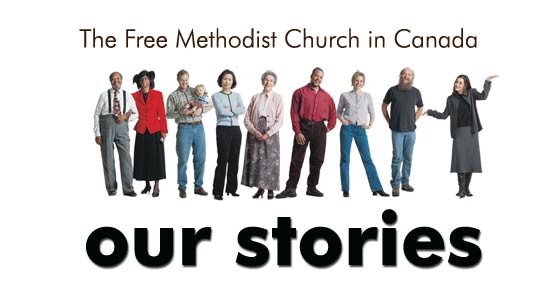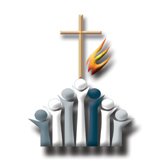Kingsview FMC in Toronto recently hosted the Special Study Commission on Ecclesiology that was recommended by General Conference 2005 and established by the national Board of Administration. Dan Sheffield and Howard Olver co-chaired the two-day conversation, May 15-16.
Ecclesiology is concerned with the nature of the community into which people are called by God, commonly referred to a “the church.” From the Greek words ekklesia meaning those “called out” and logos, meaning “study.” It is the area of theology which seeks to more fully understand the nature and purpose of the Church, from its origins to the present time. Primary issues in ecclesiology concern the relationship of the church to God, the relationship of members of the church to one another, and the commitment of people in the church to people in the world.
A recent StatsCan report indicated that more than 60% of Canadians infrequently, or never, attend public religious services. Of those Canadians who never attend religious services, however, 27% said they expressed their faith weekly with private religious practices. Of those who attend religious services infrequently, 27% said that they weekly expressed their faith through private religious practices.
This information suggests that there may be a disconnection between the personal spirituality of people in our society and their ability to express that faith in the current options available for public religious services. It is precisely this gap that different church planting groups within our Free Methodist movement are seeking to address through more contextualized forms of church.
The commission was intended to look at this intersection between the essentials of Free Methodist ecclesiology and alternative forms of church structures that are emerging in response to social indicators in Canadian society.
Participants in the commission included: Bishop Keith Elford, and National Leadership Team members: Dan Sheffield, Alan Retzman and Jared Siebert. From Western Canada were: David McLauren ( Surrey , BC ), Dan Jansen ( Calgary , AB ), Jordon Cooper ( Saskatoon , SK ), and Dennis Camplin ( Arlington Beach , SK ). From Eastern Canada were: John Vlainic, Rad Zdero, Jason Johnston (all from Mississauga , ON ), Rob Clements ( Bowmanville , ON ), Mary-Elsie Wolfe ( St Catharines , ON ), Bob Lay ( Thornbury , ON ), Jennifer Anderson ( Niagara Falls , ON ), Joseph Moreau ( Ottawa , ON ) and Nathan Umazekabiri ( Montreal , PQ ).
Special invited participant was Rev. Dr. Howard Snyder, Free Methodist historical theologian, author and professor at Asbury Theological Seminary in Kentucky.
Howard Snyder, Rad Zdero and Jared Siebert each presented papers touching on elements of the discussion. All the papers and podcasts of the speakers can be found at www.lifecycleproject.com
On the second day members of the commission worked at developing a series of affirmations about the nature and structures of the church. Participants affirmed that presently existing statements and documents such as our Articles of Religion, Core Values and The Manual cover the essentials of what we believe.
The following statements, however, particularly address the need for ongoing engagement with our changing cultural and social environment. The contextualization of church forms and structures enables us to act upon our vision to see healthy churches within the reach of all people. We were reminded that this is a particularly Wesleyan contribution – the ways of “doing” church need to fit the particular times, so that disciples of Jesus are rooted and built up in the faith.
We affirm that:
The church is the Body of Christ, the community of the Spirit, with Jesus Christ alone as source and head.
The church lives and grows on earth in a variety of social-structural forms which are largely the product of tradition, history, culture, and human invention.
The church is to live functionally as the Body of Christ within whatever forms it finds itself, and as much as possible adapt those forms so that they are functional for the church’s fidelity and mission in the world.
The Spirit and the Word provide all the essential resources for the church’s fidelity to Jesus Christ and its effective, transformative mission in the world.
The primary mission of the church is to love Jesus Christ and to be his Body in the world, continuing the work of the kingdom of God which he began.
As a community reflecting the life of the Holy Trinity, the church is called to be a community of love, mutual self-giving, and outreaching mission, worshipping God and constantly seeking to draw others to Jesus and his Body.
Since the primary visible expression of Jesus Christ in each place is the local Body of Christ, the church is called to continually reproduce itself through giving birth to new local churches (church planting). The primary advancement of the kingdom of God in the world is through the reproduction, multiplication, and organic networking of Christian communities that genuinely live and witness to the life of the kingdom; that are empowered by the Holy Spirit and look like Jesus Christ — transforming the world as a genuine Christian counterculture, rebuilding society’s microstructures and witnessing prophetically and redemptively to and within its macrostructures.
The church also exists as a broader community of regional, national and global networks. These practical connections with the larger church are both necessary and normative.
Solidarity with all humanity and the physical creation is a concern of Christian community and of gospel mission. As Christians we understand through the gospel the true nature of the relationship that exists between God, the whole human family, and the physical-social-spiritual environment. Through Jesus Christ we know the secret, the “mystery” of the plan of God for his whole creation.
The full 3-page document can be viewed here.
The Commission members affirmed that holding onto these essentials in our understanding of the nature and purpose, or the function, of the church, allows various churches to explore culturally relevant forms that may allow them to impact people who are presently alienated from existing forms of church.

